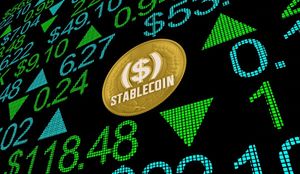
The financial landscape of late 2024 and 2025 has been dramatically reshaped by a powerful resurgence of retail traders and the enduring phenomenon of "meme stocks." Far from a fleeting trend, individual investors, often coordinating through social media and increasingly leveraging AI-driven insights, have solidified their position as a dominant force, injecting unprecedented levels of volatility and significantly boosting trading volumes across U.S. equity markets. This renewed surge of retail power is not merely a nostalgic echo of 2021 but an evolved, more sophisticated market dynamic that continues to challenge traditional investment paradigms and force institutional players to adapt.
As of November 24, 2025, the market is grappling with the profound implications of this retail-driven momentum. The collective action of individual investors has led to dramatic price swings, particularly in heavily shorted equities, creating both immense opportunities and significant risks. This period has seen sentiment, at times, override fundamental analysis, leading to rapid and substantial gains (and losses) for a diverse range of companies, and fundamentally altering the daily rhythm and strategic considerations for all market participants.
The Roaring Resurgence: A Timeline of Retail-Driven Market Shifts
The meme stock phenomenon, initially perceived as a quirky rebellion, has matured into a sophisticated, rapid-fire market force. The resurgence gained considerable momentum around May 2024, notably catalyzed by the reappearance of "Roaring Kitty" (Keith Gill), a prominent figure from the 2021 meme stock rallies, whose social media activity once again ignited fervent retail interest. This re-energized community, spanning platforms like Reddit, TikTok, and X (formerly Twitter), has consistently demonstrated its ability to orchestrate coordinated buying efforts, often targeting stocks with high short interest to trigger massive short squeezes.
Specific instances of this influence have been striking throughout 2025. Opendoor Technologies (NASDAQ: OPEN) surged over 300% in late July 2025, peaking at over 500% in a single month by July 21st, despite reporting a net loss in Q1 2025. By November 2025, it had rallied more than tenfold from penny stock territory, achieving a 485% year-to-date surge, driven primarily by renewed retail interest and social media buzz. Similarly, Kohl's Corporation (NYSE: KSS) experienced a 37.6% surge in 2025, with a 28.6% rise over one month, fueled by coordinated retail efforts to squeeze short sellers rather than strong fundamentals. Its trading volume dramatically spiked to 207 million shares in a single day, 25 times its 25-day average.
Even companies with underlying financial challenges became targets. Beyond Meat, Inc. (NASDAQ: BYND), despite high short interest (38% to over 63% of its float), saw "news-less surges" of 24% and 70% pre-market in October 2025, and a remarkable 75% single-day jump on October 20, 2025, as retail traders capitalized on short squeeze opportunities. Long-standing meme stock favorites like GameStop Corp. (NYSE: GME) and AMC Entertainment Holdings, Inc. (NYSE: AMC) continued to exhibit significant volatility. GameStop saw a 41% year-to-date surge by June 2025 following Roaring Kitty's social media activity. A "mini-spike" in GME in spring 2024 saw shares spike nearly 400% in weeks. Retail investors now account for approximately 20.5% of daily U.S. equity trading volume in mid-2025, a substantial increase, with retail activity reaching an all-time high of 36% of total order flow on April 29, 2025.
Winners and Losers in the Volatility Vortex
The renewed meme stock phenomenon creates a distinct set of winners and losers within the market, often defying traditional valuation metrics. Companies with high short interest and a recognizable brand tend to be the primary beneficiaries of sudden, explosive rallies. These include the aforementioned Opendoor Technologies (NASDAQ: OPEN), Kohl's Corporation (NYSE: KSS), and Beyond Meat, Inc. (NASDAQ: BYND), which saw their stock prices soar on the back of retail enthusiasm and short squeezes. For these companies, a surge in stock price can temporarily alleviate financial pressures, increase market capitalization, and provide opportunities for capital raises, although the underlying business fundamentals may not always support such valuations.
Conversely, the primary "losers" are often hedge funds and institutional investors holding significant short positions in these targeted stocks. The July 2025 short squeeze, for instance, triggered a reported $2.5 billion loss for hedge funds betting against these volatile names. While some institutions have adapted by integrating retail-driven momentum into their strategies, those caught off guard by sudden, massive price spikes face substantial financial repercussions. Companies with fundamentally weak business models that become meme stocks also face a double-edged sword; while their stock may soar, the eventual correction can be severe, potentially damaging investor confidence and making future capital acquisition more challenging when the retail frenzy subsides.
Moreover, the extreme volatility itself can be a double-edged sword for the companies involved. While a higher stock price can be beneficial, the wild swings can deter long-term institutional investors seeking stability. The unpredictable nature of meme stock movements makes it difficult for companies to plan and execute long-term strategies, as their valuation can become decoupled from their operational performance. This environment also places increased scrutiny on corporate governance, as companies must navigate the expectations of a highly engaged, yet often fickle, retail investor base.
Broader Significance: A New Era of Market Dynamics
The resurgence of retail traders and meme stocks signals a profound shift in broader industry trends, highlighting the ongoing "democratization of finance." The widespread availability of mobile trading platforms like Robinhood and Webull, coupled with zero-commission trades and fractional share investing, has empowered a new generation of investors. The average age of a retail investor is now 33, reflecting a youth-driven market shift with a propensity for higher-risk investments and a "buy the dip" mentality that often contributes to accelerated market rebounds. This demographic shift, combined with a 50% increase in retail investor flows from 2023 to early 2025, indicates a significantly increased risk appetite among individual traders.
The ripple effects extend beyond individual stocks. The U.S.-listed options market has seen a dramatic increase in retail participation, with volume projected to hit a record 13.8 billion contracts in 2025. Retail traders' share in short-dated options (less than or equal to 5 days to expiry) rose from approximately 35% to 56%, and 0DTE (0-days-to-expiry) options now constitute 40% to 50% of total retail options volume, further amplifying market volatility and creating rapid, sometimes unpredictable, movements in underlying assets. This increased options activity, often used for speculative purposes, can trigger hedging activities by market makers, leading to further price amplification.
Regulatory bodies are keenly observing these dynamics. While no major new regulations have been implemented specifically targeting meme stock activity as of November 2025, discussions around market manipulation, transparency in short selling, and the role of social media in coordinating trading activities are ongoing. Historical precedents, such as the "pump and dump" schemes of the penny stock era, offer comparisons, but the scale and speed enabled by modern technology and social media make the current meme stock phenomenon unique. Institutional investors, initially dismissive, are now integrating retail-driven momentum into their strategies, employing AI-powered risk analytics to monitor real-time sentiment shifts and even adopting "inclusion strategies" to blend retail agility with institutional discipline, reportedly achieving 3-4% outperformance in 2025.
What Comes Next: Navigating the Evolving Market Landscape
Looking ahead, the influence of retail traders and meme stocks is unlikely to wane. In the short term, markets can expect continued bouts of extreme volatility in specific equities, especially those with high short interest or a strong social media narrative. The "buy the dip" mentality, coupled with the increasing sophistication of retail coordination (potentially augmented by AI tools), suggests that sudden price surges and short squeezes will remain a recurring feature. Traders and investors should anticipate rapid shifts in sentiment and be prepared for swift market movements that may not align with traditional fundamental analysis.
In the long term, this phenomenon could lead to several strategic pivots. Companies with high short interest may proactively engage with retail investor communities or adopt strategies to mitigate the risks of becoming a meme stock target. Brokerages and trading platforms will likely continue to innovate, offering more sophisticated tools and data to their retail clientele, further empowering individual investors. Regulatory bodies may eventually introduce clearer guidelines regarding social media influence on market movements, though balancing free speech with market integrity remains a complex challenge.
Market opportunities will emerge for those adept at identifying and capitalizing on these sentiment-driven movements, including specialized funds or trading algorithms designed to track retail trends. However, significant challenges also loom, particularly for traditional long-term investors seeking stability and predictable returns. Potential scenarios include a further entrenchment of a two-tiered market—one driven by fundamentals and another by sentiment—or a more integrated environment where institutional strategies consistently incorporate retail flow analysis. The ongoing evolution of AI and its role in investment decisions, both for retail and institutional players, will be a critical factor to watch.
Comprehensive Wrap-up: The Enduring Power of the Crowd
The period from late 2024 through November 2025 has unequivocally demonstrated that retail traders and meme stocks are not a fleeting anomaly but a fundamental, evolving force in the financial markets. The key takeaway is the undeniable shift in market power, with individual investors wielding significant influence over stock prices and trading volumes, often through coordinated action amplified by social media and AI. This has led to a market environment characterized by heightened volatility and a fascinating interplay between fundamental valuation and crowd-driven sentiment.
Moving forward, the market will continue to be a dynamic arena where traditional analysis often collides with the power of collective retail enthusiasm. Investors must adapt to this new reality, recognizing that sentiment can drive significant, albeit sometimes temporary, market movements. The lasting impact is a more democratized, yet potentially more unpredictable, market where information dissemination and collective action can rapidly alter fortunes.
What investors should watch for in the coming months includes any new regulatory responses to market volatility, further advancements in AI tools for retail traders, and how institutional players continue to refine their strategies to either counter or capitalize on meme stock phenomena. The ongoing saga of retail empowerment promises to keep the financial markets both challenging and captivating for the foreseeable future.
This content is intended for informational purposes only and is not financial advice





